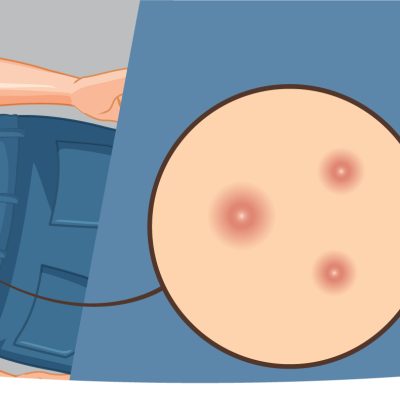Pregnancy is a time of many changes for the body. Hormone fluctuations, in particular, have an impact on the balance of the epidermis, which then undergoes disturbances: acne, stretch marks, spots, pimples… These concerns can be a source of discomfort and stress for expectant mothers.
The good news is that they can be prevented, and even remedied when they do occur. All it takes is targeted skin care.
How do you take care of your skin during pregnancy?
Focus on the right products to use and the right steps to take.

Why does the skin undergo changes during pregnancy?
Many factors cause skin problems during pregnancy, the most significant being the influx of female hormones such as melanin and cortisol. These trigger acne flare-ups, the appearance of pregnancy mask or chloasma, and stretch marks.
Skin disorders can also be caused by increased blood volume. This is due to the fact that you communicate with your baby through the placenta, which is made up of a multitude of blood vessels. The smallest blood vessels can burst, causing redness in the form of small dots. This phenomenon is more commonly known as stellate angiomas. In most cases, they disappear gradually after childbirth.
In addition, these changes are also due to weight gain during pregnancy and the subsequent stretching of the skin. They cause the skin to dry out, as the baby grows in the womb and the skin becomes tighter. The best solution is to apply a soothing, nourishing product such as a vegetable oil.
Last but not least, skin problems can arise from overactive sebaceous glands. This causes seborrheic keratoses, which take the form of flat or raised pigmented lesions.

Skin care during pregnancy
Being pregnant doesn’t mean you don’t need to take care of your skin – actually, it’s quite the opposite. Following a beauty routine for the skin is an effective way to prevent skin problems as far as possible.
The cleansing
Facial cleansing is an essential part of your beauty routine. It removes dirt from the skin and prepares it for other treatments.
If you have acne, opt for gentle cleansers such as micellar water or purifying gel, which cleanse the skin without aggressing it. A simple soap can exacerbate sebum production and increase pimples.
Generally speaking, comedogenic products and skincare products containing retinol, essential oils or aluminum salts are not recommended during pregnancy.
Moisturizing
Regular skin moisturizing is vital during pregnancy. This applies as much to the face as to the legs, arms and even the stomach and breasts. For the next 9 months, make sure you apply a moisturizing cream morning and night. You can also opt for shea oil, which has nourishing properties for very dry skin.
During application, massage the product into the skin to soften it and keep it smooth. In this way, even distended skin will be less prone to blemishes.
For the breasts in particular, you should opt for products based on active tensors, which preserve the skin’s elasticity. For more information on caring for your breasts during pregnancy, ask your doctor.
If you are prone to stretch marks, you can also apply an anti-stretch mark cream to your breasts.

Sun protection
Pregnant women’s skin is much more sensitive than usual. As a result, it reacts more quickly to external aggressors, including the sun’s rays. Sun exposure leads to brown spots on the forehead, face and cheeks. It is also at the origin of the famous pregnancy mask!
So, to protect yourself or at least reduce its appearance, always apply sunscreen with an SPF of at least 50 on sunny days. And make sure you wear a wide-brimmed hat when you’re out and about, to keep your face out of the sun.
Exfoliation
Besides cleansing with a suitable product, exfoliation is also an effective way to help moisturizers penetrate the skin’s layers. In fact, exfoliation removes the dead cells that clog the skin. The recommended frequency for exfoliation is once a week.






